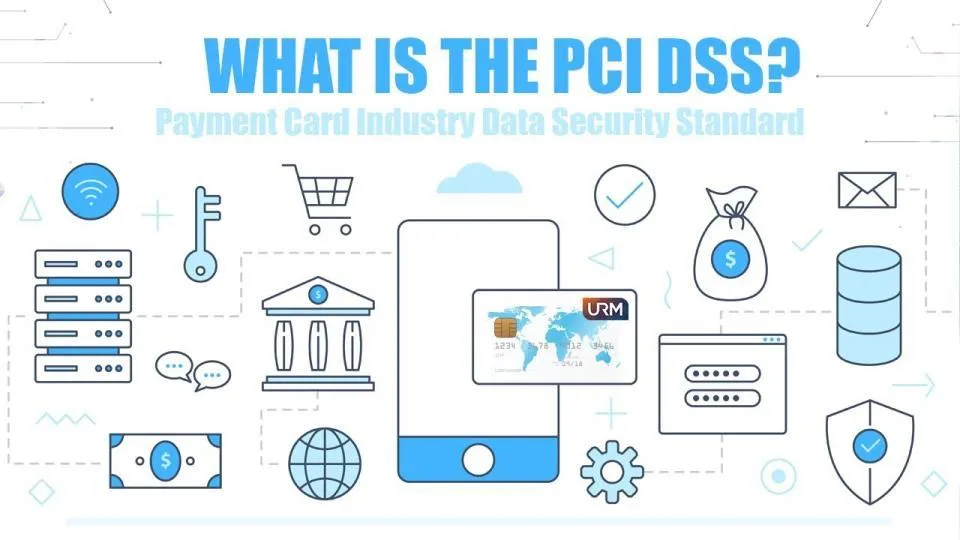Blogs

What is all this talk about PCI Compliance from our Credit Card Processor?
“ Understanding PCI Compliance: Protecting Businesses and Customer Data"
In today's digital landscape, businesses handle vast amounts of sensitive customer data, particularly when processing credit card transactions. However, this valuable information is also a prime target for cybercriminals. To mitigate the risks associated with data breaches, the Payment Card Industry Security Standards Council (PCI SSC) has established a set of requirements known as PCI compliance. In this article, we will delve into what PCI compliance entails, why it is crucial for businesses, the risks of non-compliance, recommended services for achieving compliance, and whether it is required by the government.
What is PCI Compliance?
PCI compliance refers to adhering to a set of security standards and guidelines established by the PCI SSC, an organization founded by major credit card brands (Visa, Mastercard, American Express, Discover, and JCB) to safeguard cardholder data. The primary goal of PCI compliance is to protect sensitive information and prevent unauthorized access, ensuring the security of credit card transactions.
Why is PCI Compliance Necessary?
The need for PCI compliance arises from the increasing frequency and sophistication of data breaches, which pose significant financial and reputational risks to businesses. By adhering to PCI compliance, businesses can:
Safeguard Customer Trust: Demonstrating a commitment to protecting customer data enhances trust, loyalty, and the reputation of the business.
Minimize Legal and Financial Consequences: Non-compliance can result in severe penalties, fines, legal action, and potential liabilities in the event of a data breach.
Mitigate Data Breach Risks: Implementing PCI DSS safeguards helps prevent unauthorized access, reducing the likelihood of data breaches and their associated costs.
Is PCI Compliance Required by the Government?
While PCI compliance is not mandated by the government, it is a requirement set by the major credit card brands. For example, Visa, Discover, American Express etc. Then those brands are connected with our credit card processor who is responsible to make sure we are compliant. Non-compliance with PCI standards can lead to the revocation of a business's ability to process credit card payments, which can have severe financial implications.
In the end, your credit card merchant processors will require you to do their specific verification. When I went through the process with stripes, it was different from Intuit. So you will need to follow each company's process.
Risks of Non-Compliance: Failure to comply with PCI requirements can have several detrimental consequences for businesses, including:
Financial Penalties: Businesses that suffer a data breach while not being PCI compliant may face substantial fines imposed by the card brands and acquiring banks. These fines can range from thousands to millions of dollars, depending on the scale of the breach and the extent of non-compliance.
Legal Liabilities: Non-compliant businesses may also face legal action from customers and financial institutions affected by a data breach. Lawsuits can result in significant financial burdens, damage to reputation, and even business closure in severe cases.
Reputational Damage: Data breaches and non-compliance can severely impact a business's reputation, eroding customer trust and loyalty. Rebuilding a damaged reputation can be challenging and time-consuming.
The 12-Point PCI DSS Checklist:
The PCI DSS provides a comprehensive framework to guide businesses in achieving compliance. The following 12-point checklist outlines the core requirements:
Install and maintain a firewall configuration to protect cardholder data.
Avoid using vendor-supplied default passwords or security parameters.
Protect stored cardholder data with encryption.
Encrypt cardholder data during transmission across open and public networks.
Use and regularly update anti-virus software or programs.
Develop and maintain secure systems and applications.
Restrict access to cardholder data on a need-to-know basis.
Assign a unique ID to each person with computer access.
Restrict physical access to cardholder data.
Regularly track and monitor all access to network resources and cardholder data.
Regularly test security systems and processes.
Maintain a policy that addresses information security for all personnel.
By adhering to these requirements, businesses can establish robust security measures, detect vulnerabilities, and proactively protect cardholder data.
Check list Resource On Page 9: https://listings.pcisecuritystandards.org/documents/PCI_DSS-QRG-v3_2_1.pdf
Recommended Services for Achieving Compliance: To ensure PCI compliance, businesses can consider utilizing the following services:
Qualified Security Assessors (QSA): QSAs are independent security organizations certified by the PCI SSC. They can assess a business's systems, processes, and security controls to identify areas of non-compliance and provide recommendations for achieving compliance.
Payment Gateways: Utilizing reputable payment gateways that are PCI compliant can simplify compliance for businesses. These gateways often offer secure payment processing, tokenization, and encryption services, reducing the scope of compliance efforts.
Managed Security Service Providers (MSSP): MSSPs specialize in providing security services and solutions. They can help businesses implement and manage security controls, conduct vulnerability assessments, and monitor systems for potential threats.
PCI compliance is essential for businesses that process credit card transactions as it helps protect sensitive customer data, minimize financial and legal risks, and maintain trust. Non-compliance can result in severe penalties, legal liabilities, and reputational damage. To achieve compliance, businesses can seek the assistance of Qualified Security Assessors, reputable payment gateways, and Managed Security Service Providers. While not mandated by the government, adhering to PCI standards is vital for the continued operation and success of businesses in the payment card industry. By prioritizing PCI compliance, businesses can safeguard customer data and demonstrate their commitment to data security and privacy.
PCI Security Standards Council Website
https://www.pcisecuritystandards.org/
Address
West BlueGrass Blvd.
2901 West Bluegrass Blvd. Suite 200, UTAH
Email Address
Office Number
801-981-5477

Get latest Accounting tips from us!
Get latest SEO tips from us!
Subscribe to our social
I agree to terms & conditions provided by the company. By providing my phone number, I agree to receive text messages from the business.
Copyright Virtual Accounting Solutions 2023 -- All Rights Reserved
We’re on a mission to build a better future where technology creates good jobs for everyone.




